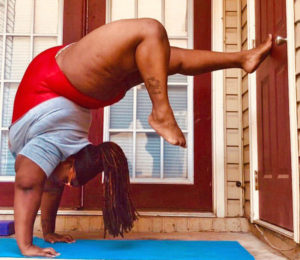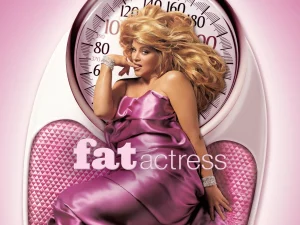By playing with an online BMI calculator, I find that I qualify as obese. Thanks for that, U.S. Department of Health & Human Services! If I could manage to grow just one inch taller, I would qualify as merely overweight. (I’ll work on that. My ability to grow an inch is only slightly less probable than my ability to lose weight and keep it off.)
The BMI fails miserably as an objective measure of fitness or health.
First, the number of pounds you carry isn’t an accurate measure of your health. You can be plus-size, strong and healthy with great blood work, and you can be thin, weak, sickly and have abysmal numbers on all your blood work.
Second, the BMI fails big-time for very muscular people. Hard-core bodybuilders with lots of muscle and very little body fat may be told their BMI qualifies them as obese. Others, who actually carry more body fat, may have a favorable BMI.
This is more than just a little insulting. For some people, having a high BMI — regardless of how healthy they actually are or how much fat they actually carry — can affect their insurance rates.
The Outdated BMI: An Old, Old Idea
Would it surprise you to learn that we are still using a measure that was invented by a Belgian statistician named Adolphe Quetelet? In the mid-1800s? When he was 23? When we read up about Monsieur Quetelet, we were impressed with his accomplishments. But is this really the best we can do in 2020?
Unless you’re a researcher who needs to quantify the weight of a large number of people, we aren’t sure reducing a person’s body composition to a number is really helpful. Objectively, we can look at a body and make a judgment about how much fat a person is carrying — most women do this all too well when looking in the mirror.
We think making a judgment about health requires more than a measure of a person’s weight. It means a physical examination. It means measuring things like blood work, blood pressure and heart rate. How strong are you? Do you exercise? Can you run/walk/jog/bike at a reasonable rate without becoming winded? Do you eat nutritious food most of the time? You cannot reduce all this information down to a single number and use it to declare a person fat, let alone unhealthy.
There’s A New Game in Town: RFM (Relative Fat Mass)
When a measurement is needed (which is not often in our body-positive opinion), there’s a relatively new one in town: the RFM (Relative Fat Mass). It was developed by Orison O. Woolcott and Richard N. Bergman and reported in the July 2019 Scientific Reports. It involves measuring your height and waist and plugging those numbers into a formula. If you want to see where you fall on the RFM scale, an easy explanation of how to use it is in this article in Science Alert. (Again, this is not something most people need to do.)
For some people, obsession with such measurements can be harmful. Get a doctor you trust and have a thorough examination. Take good care of yourself in all the important ways: Eat well, exercise appropriately, drink moderately or not at all and get enough good sleep. Handle your stress. You know the routine. That’s more useful than obsessing about any particular number, or your weight!
Instead, try BLR: Body Love Regardless. You’re worth it. Your body is a beautiful work of art. Celebrate it.
Photo Credit: @out_of_my_chell – Michelle Irene Jones






























